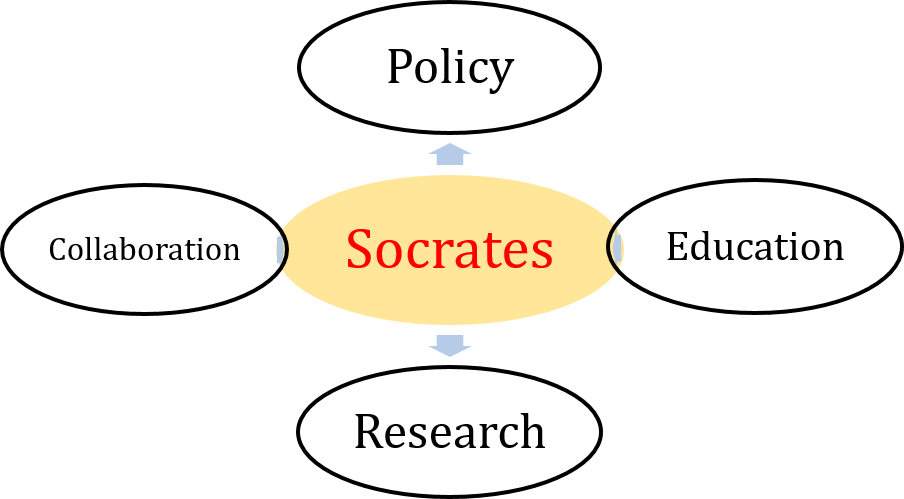

Summary
Artificial intelligence applies machine learning, deep learning and big data to solve actual problems. Medicine is an academic discipline that includes aspects of sciences, humanities, society, ethics, law, and the use of advanced technology. However, in the era of artificial intelligence, there is limited evidence available about the issues of humanities, society, ethics, and law in the field of medicine. Hence, the aim of this study is to investigate the ethical, legal and societal issues of artificial intelligence in medicine. This project includes four subprojects: (1) The deliberation of ethical issues on artificial intelligence-assisted medicine; (2) legal and policy implications of artificial intelligence in medicine; (3) the implications of societal issues on artificial intelligence-assisted end-of-life physician-patient communication: opportunities and challenges; and (4) artificial intelligence-based medicine assisted system from analytical design to practical application.
The objectives of this four-year project are: (1) To examine ethical issues on artificial intelligence-assisted medicine using empirical research and philosophical inquiry; (2) To investigate legal and policy implications of artificial intelligence in medicine using empirical research; (3) To examine social issues on artificial intelligence-assisted medicine using empirical research; (4) To collaborate with academic institutions focusing on ethical, legal and societal issues of artificial intelligence in medicine; (5) To host international conferences on the ethical, legal and societal issues of artificial intelligence in medicine; (6) To educate and promote artificial intelligence-assisted medicine; and (7) To provide recommendations on the ethical, legal and societal issues of artificial intelligence in medicine to the government.
Until now, for the research part, comprehensive review about the literature and the current guidelines proposed by crucial academic institutions is still going on. In addition, we continue to examine the issues associated with the action guideline for artificial intelligence proposed by MOST, e.g. intelligent entity’s decision-making at the end-of-life; legal status of intelligent entities while making medical decisions; and so far so forth. For the education part, though being delayed by COVID-19 pandemic, we continue to actively participate in crucial international conference focusing on ELSI and AI. Furthermore, we also hosted several important and popular domestic meetings with a large number of participants. For the collaboration part, several important scholars from University of Aberdeen were invited to participate in a domestic meeting for ELSI-AIM in January, and collaboration on some research issues has been started.
Keywords
ELSI, ethics, law, society, artificial intelligence
Artificial intelligence applies machine learning, deep learning and big data to solve actual problems. Medicine is an academic discipline that includes aspects of sciences, humanities, society, ethics, law, and the use of advanced technology. However, in the era of artificial intelligence, there is limited evidence available about the issues of humanities, society, ethics, and law in the field of medicine. Hence, the aim of this study is to investigate the ethical, legal and societal issues of artificial intelligence in medicine. This project includes four subprojects: (1) The deliberation of ethical issues on artificial intelligence-assisted medicine; (2) legal and policy implications of artificial intelligence in medicine; (3) the implications of societal issues on artificial intelligence-assisted end-of-life physician-patient communication: opportunities and challenges; and (4) artificial intelligence-based medicine assisted system from analytical design to practical application.
The objectives of this four-year project are: (1) To examine ethical issues on artificial intelligence-assisted medicine using empirical research and philosophical inquiry; (2) To investigate legal and policy implications of artificial intelligence in medicine using empirical research; (3) To examine social issues on artificial intelligence-assisted medicine using empirical research; (4) To collaborate with academic institutions focusing on ethical, legal and societal issues of artificial intelligence in medicine; (5) To host international conferences on the ethical, legal and societal issues of artificial intelligence in medicine; (6) To educate and promote artificial intelligence-assisted medicine; and (7) To provide recommendations on the ethical, legal and societal issues of artificial intelligence in medicine to the government.
Until now, for the research part, comprehensive review about the literature and the current guidelines proposed by crucial academic institutions is still going on. In addition, we continue to examine the issues associated with the action guideline for artificial intelligence proposed by MOST, e.g. intelligent entity’s decision-making at the end-of-life; legal status of intelligent entities while making medical decisions; and so far so forth. For the education part, though being delayed by COVID-19 pandemic, we continue to actively participate in crucial international conference focusing on ELSI and AI. Furthermore, we also hosted several important and popular domestic meetings with a large number of participants. For the collaboration part, several important scholars from University of Aberdeen were invited to participate in a domestic meeting for ELSI-AIM in January, and collaboration on some research issues has been started.
Keywords
ELSI, ethics, law, society, artificial intelligence
◎ PI

PI Yen-Yuan Chen
Professor, Graduate Institute of Medical Education and Bioethics, NTU/ Vice Director and Attending Physician, Department of Medical Education, NTUH

Co-PI Chien-Chang Wu
Associate Professor, Graduate Institute of Medical Education and Bioethics, NTU/ Attending Physician, Department of Psychiatry, NTUH

Co-PI Duan-Rung Chen
Chairperson and Professor, Graduate Institute of Health Behaviors and Community Sciences, NTU

Co-PI Cheng-Fu Chou
Professor, Department of Computer Sciences and Information Engineering, NTU/ Chief, Dividion of Systemic Engineering at Information Technology Office, NTUH

